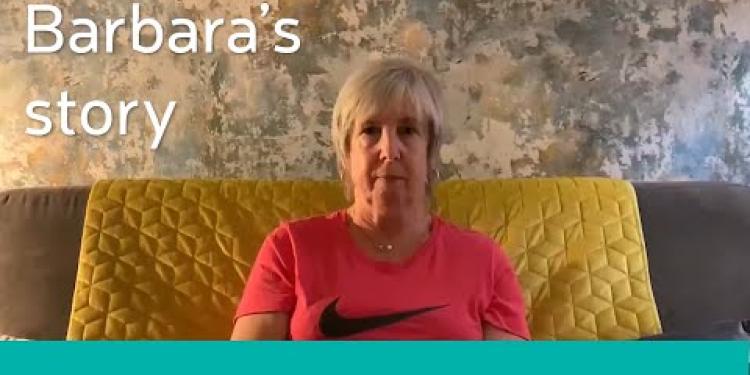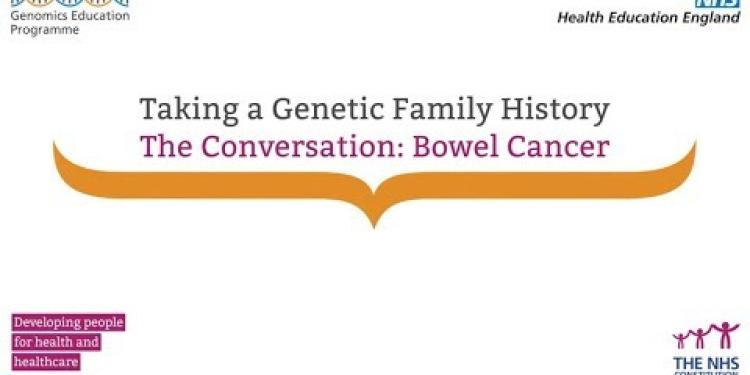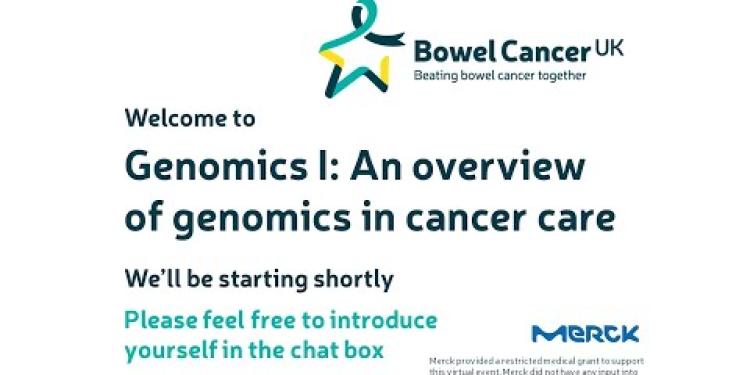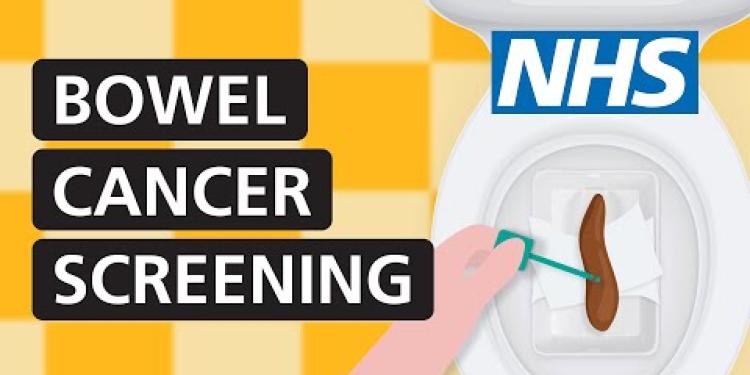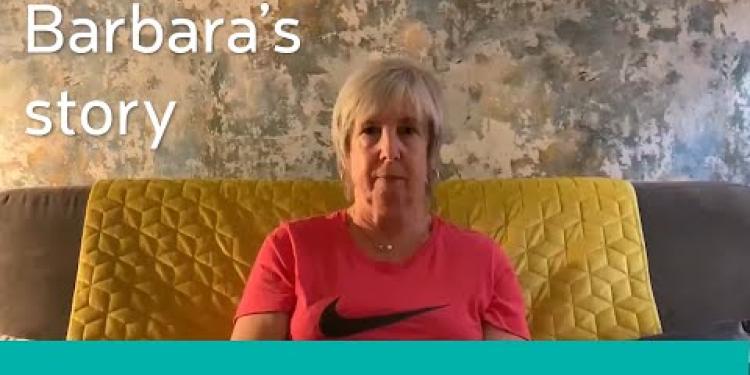Important Information On Using This Service
- Ergsy carefully checks the information in the videos we provide here.
- Videos shown by YouTube after a video has completed have NOT been reviewed by ERGSY.
- To view, click the arrow in the center of the video.
Using Subtitles and Closed Captions
- Most of the videos you find here will have subtitles and/or closed captions available.
- You may need to turn these on and choose your preferred language.
Turn Captions On or Off
- Go to the video you'd like to watch.
- If closed captions (CC) are available, settings will be visible on the bottom right of the video player.
- To turn on captions, click settings.
- To turn off captions, click settings again.
Find A Professional
More Items From Ergsy search
-

Bowel cancer - Symptoms and signs to look out for
Relevance: 100%
-

Learn about bowel cancer (British Sign Language version)
Relevance: 79%
-

Bowel cancer screening: Alan Titchmarsh and Tommy Walsh | NHS
Relevance: 71%
-
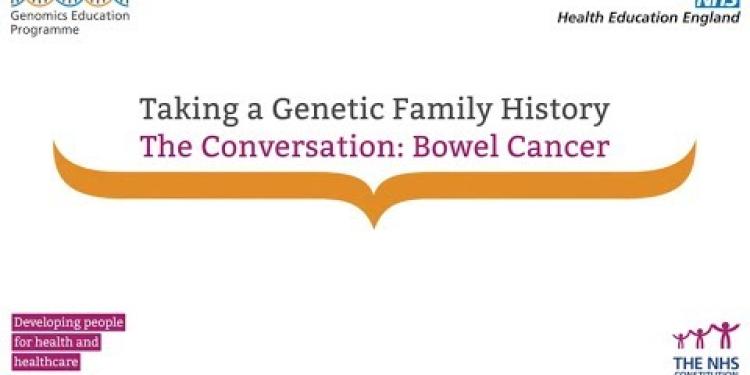
Taking a Genetic Family History - The Conversation (Bowel Cancer)
Relevance: 67%
-

What is Cancer?
Relevance: 57%
-

Ovarian Cancer
Relevance: 56%
-

Endometrial Cancer
Relevance: 55%
-
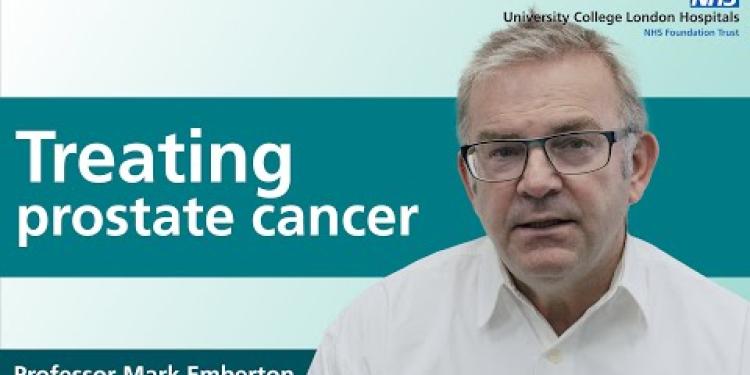
Treating prostate cancer
Relevance: 54%
-
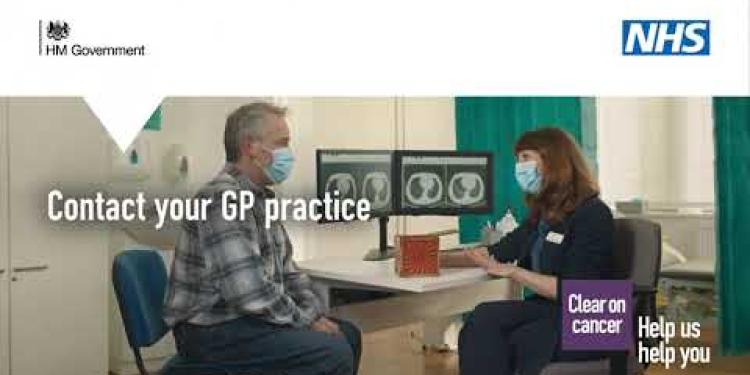
Don't carry the worry of cancer with you | NHS
Relevance: 53%
-

Breast cancer: testing and treatment | NHS
Relevance: 52%
-

Worried about signs that could be cancer? Contact your GP practice | NHS
Relevance: 52%
-

Why do men get prostate cancer?
Relevance: 51%
-

World Pancreatic Cancer Day - No Time to Wait
Relevance: 51%
-
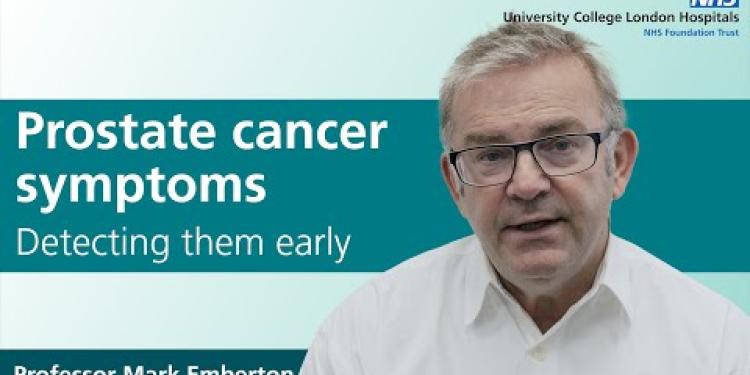
Prostate cancer symptoms - detecting them early
Relevance: 50%
-
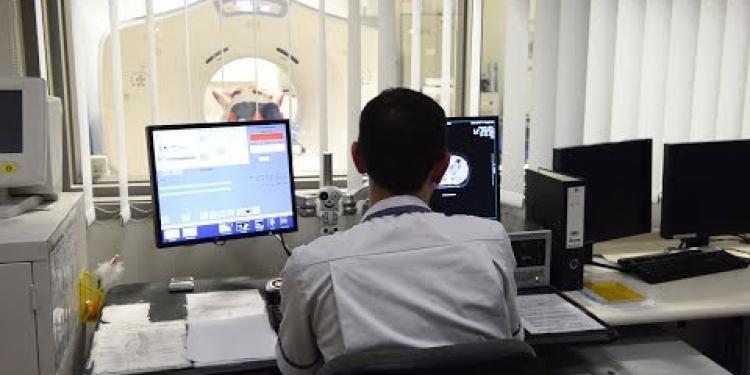
Having radiotherapy for breast cancer - 3 Videos
Relevance: 50%
-
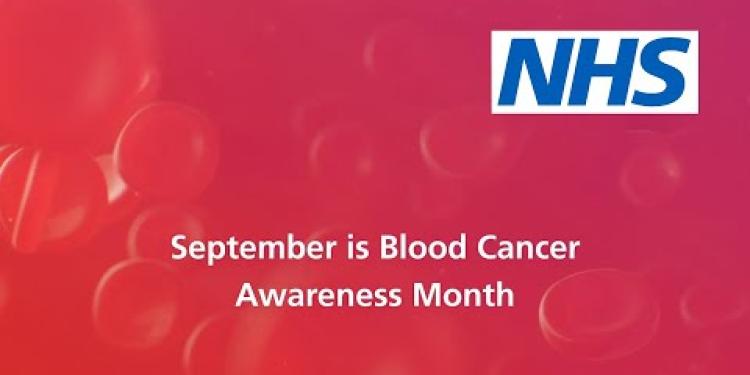
4 facts about blood cancer that you should know | NHS
Relevance: 48%
-

Skin cancer education
Relevance: 47%
-

What is Radiotherapy, and its use in treatment for cancers?
Relevance: 46%
-

Prostate cancer diagnosis and tests
Relevance: 46%
-

Head and Neck Cancer Diagnosis
Relevance: 45%
-

What is Prostate Cancer?
Relevance: 45%
-
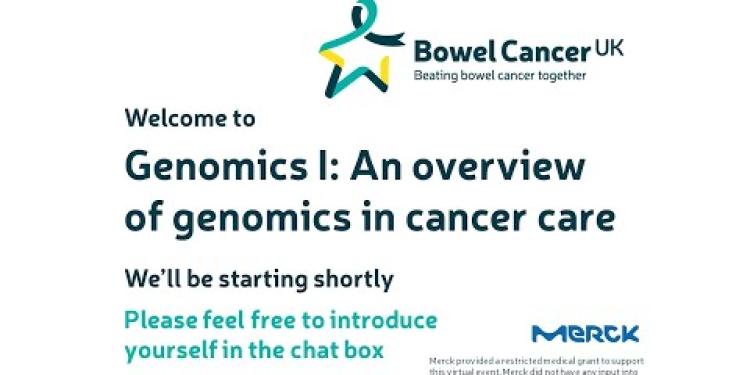
Genomics I: An overview of genomics in cancer care
Relevance: 44%
-

Vaginal Cancer
Relevance: 43%
-
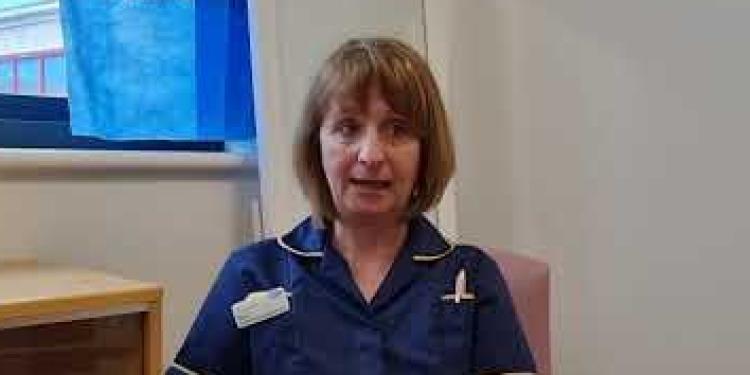
Ovarian cancer - signs and symptoms to look out for
Relevance: 41%
-

Mouth Cancer Awareness
Relevance: 41%
-

Getting to know your Testicles: Testicular Cancer Awareness with Dr James Howarth, Spilsby Surgery
Relevance: 41%
-
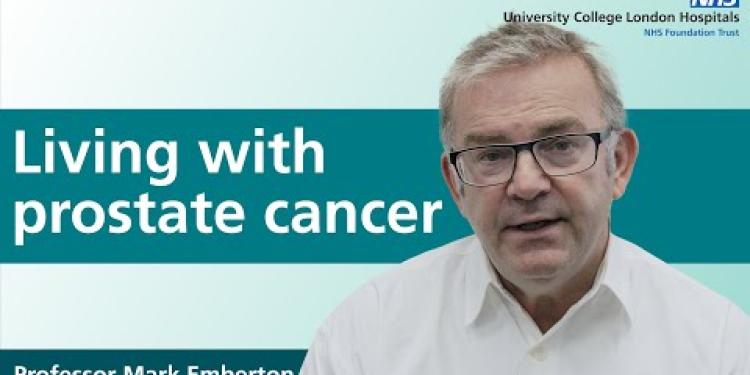
Living with prostate cancer
Relevance: 40%
-

Get cancer symptoms checked by your GP | NHS
Relevance: 40%
-
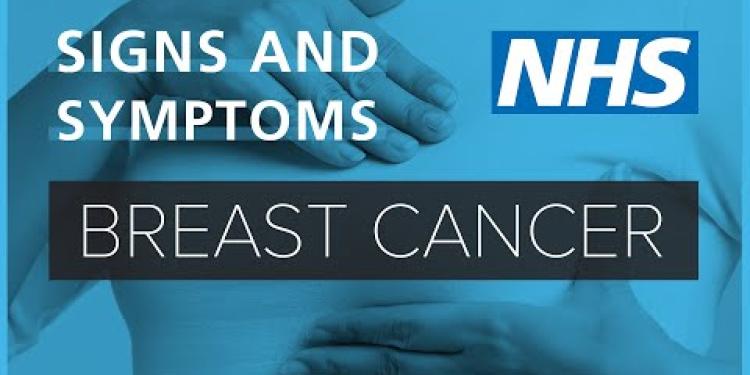
About Breast cancer - signs and symptoms | NHS
Relevance: 39%
-
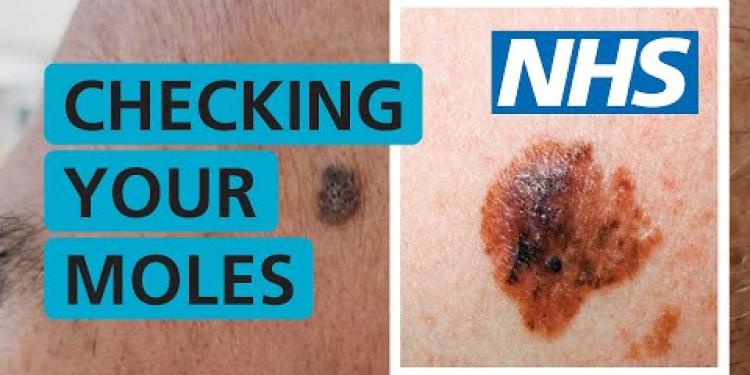
Skin Cancer - How do I check if my mole is skin cancer? | NHS
Relevance: 39%
-

Raising awareness of ovarian cancer
Relevance: 39%
-

Endometrial Cancer
Relevance: 38%
-

Am I more at risk of prostate cancer?
Relevance: 37%
-
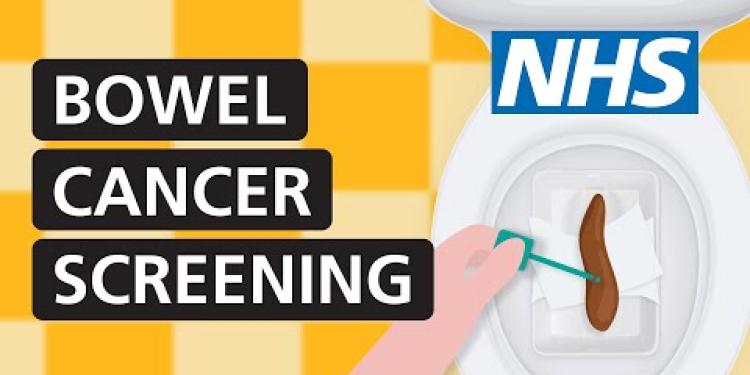
How to use the bowel cancer screening FIT kit | NHS
Relevance: 37%
-

How to do the FIT bowel cancer screening test | Cancer Research UK
Relevance: 35%
-

Vulval Cancer
Relevance: 35%
-

Royal Berkshire NHS Foundation Trust: Radiotherapy for prostate cancer
Relevance: 32%
-

NHS breast cancer screening
Relevance: 31%
-

Endometrial Cancer
Relevance: 31%
-

Mouth Cancer Infomercial
Relevance: 31%
About Bowel Cancer
Bowel cancer, also known as colorectal cancer or colon cancer, is a type of cancer that starts in the colon or rectum. It usually develops from polyps, which are small growths on the inner lining of the colon or rectum. While not all polyps turn into cancer, some do over time, making regular screenings and early detection important for prevention and treatment.
Causes and Risk Factors:
- Age: The risk of bowel cancer increases with age, with most cases occurring in people over 50.
- Family History: Individuals with a family history of bowel cancer or certain genetic syndromes like familial adenomatous polyposis (FAP) or Lynch syndrome are at higher risk.
- Diet and Lifestyle: A diet high in red and processed meats, low in fiber, obesity, lack of physical activity, smoking, and heavy alcohol consumption can increase the risk.
- Inflammatory Bowel Disease (IBD): Conditions like Crohn's disease and ulcerative colitis increase the risk of developing bowel cancer.
Symptoms:
- Change in Bowel Habits: Persistent diarrhea or constipation, or a change in the consistency of stool.
- Blood in Stool: Blood may appear bright red or dark, and may be accompanied by rectal bleeding or blood in the toilet.
- Abdominal Discomfort: Persistent abdominal discomfort, such as cramps, gas, or pain.
- Unexplained Weight Loss: Significant and unexplained weight loss without any dietary changes or increased exercise.
- Fatigue: Persistent tiredness or weakness.
- Iron Deficiency Anemia: Low red blood cell count due to chronic blood loss.
Diagnosis:
- Colonoscopy: A procedure in which a flexible tube with a camera is inserted into the rectum to examine the colon and rectum for polyps or cancerous growths.
- Biopsy: If suspicious areas are found during a colonoscopy, a biopsy may be taken to confirm the presence of cancerous cells.
- Blood Tests: Blood tests may be done to check for anemia or to assess liver function, as bowel cancer can spread to the liver.
Treatment:
- Surgery: The primary treatment for bowel cancer involves removing the cancerous tumor along with a portion of healthy tissue. In some cases, nearby lymph nodes may also be removed.
- Chemotherapy: Chemotherapy may be recommended before or after surgery to kill cancer cells or shrink the tumor.
- Radiation Therapy: Radiation therapy may be used to target and destroy cancer cells, especially if the cancer has spread beyond the colon or rectum.
- Targeted Therapy: Drugs that target specific abnormalities within cancer cells may be used in combination with chemotherapy or alone.
- Immunotherapy: Immunotherapy drugs help the body's immune system fight cancer cells and may be used in some cases.
Prevention:
- Screening: Regular screenings, such as colonoscopies, can help detect precancerous polyps or early-stage cancer when treatment is most effective.
- Healthy Lifestyle: Eating a balanced diet high in fruits, vegetables, and whole grains, maintaining a healthy weight, exercising regularly, limiting alcohol consumption, and avoiding tobacco can reduce the risk of developing bowel cancer.
- Medication: Some medications, such as aspirin or nonsteroidal anti-inflammatory drugs (NSAIDs), may reduce the risk of developing bowel cancer in certain individuals, but they should only be used under medical supervision.
Early detection and treatment of bowel cancer can significantly improve outcomes and increase the chances of survival. It's important to consult with a healthcare professional about individual risk factors and screening recommendations.
Learn about Bowel Cancer (British Sign Language Version)
Understanding Bowel Cancer
Bowel cancer, also known as colorectal cancer, affects the large bowel, which is made up of the colon and rectum. It is one of the most common types of cancer diagnosed in the United Kingdom. Early detection and treatment are crucial to improve the chances of a full recovery.
Symptoms of Bowel Cancer
Common symptoms can include blood in the stool, a persistent change in bowel habits (such as constipation or diarrhoea), abdominal pain, and unexplained weight loss. It is important to consult with a healthcare professional if any of these symptoms are observed.
Importance of Screening
Regular screening is vital for early detection. In the UK, the NHS provides bowel cancer screening to individuals between 60 and 74 years old. This can involve a faecal immunochemical test (FIT) that checks for hidden blood in the stool. Early detection through screening significantly improves treatment success.
Treatments for Bowel Cancer
Treatment options typically include surgery, chemotherapy, radiotherapy, and targeted therapies. The choice of treatment depends on the stage and location of the cancer, as well as the overall health of the patient. A multidisciplinary team will recommend the best approach for each individual.
Support and Resources
Various organisations offer support and information for those affected by bowel cancer. Bowel Cancer UK and Macmillan Cancer Support provide resources, financial assistance, and emotional support. For those using British Sign Language, many services include sign language interpreters to ensure accessible information.
Accessing British Sign Language Resources
For individuals who are deaf or hard of hearing, resources are available in British Sign Language (BSL). Bowel Cancer UK offers BSL videos that cover symptoms, screening processes, and treatment options. These resources ensure that crucial health information is accessible to the entire community.
About Bowel Cancer
Bowel cancer is a type of cancer that starts in the large intestine (colon) or the end part (rectum). It can begin as small growths called polyps inside the colon or rectum. Not all polyps become cancer, but some do. That is why it's important to check for them regularly so they can be treated early.
Causes and Risk Factors:
- Age: People over 50 are more likely to get bowel cancer.
- Family History: If others in your family had bowel cancer, you could be at higher risk. Some genetic conditions also increase risk.
- Diet and Lifestyle: Eating a lot of red and processed meats, not eating enough fiber, being overweight, not exercising enough, smoking, and drinking a lot of alcohol can increase risk.
- Inflammatory Bowel Disease (IBD): Conditions like Crohn's disease or ulcerative colitis can increase risk.
Symptoms:
- Change in Bowel Habits: You might have diarrhea or constipation often, or notice a change in your stool.
- Blood in Stool: You might see bright red or dark blood in your stool or in the toilet.
- Abdominal Discomfort: You may feel cramps, gas, or pain in your belly that doesn't go away.
- Unexplained Weight Loss: You might lose a lot of weight without dieting or exercising more.
- Fatigue: You might feel very tired or weak all the time.
- Iron Deficiency Anemia: You could become anemic, meaning you have fewer red blood cells because of blood loss.
Diagnosis:
- Colonoscopy: A doctor uses a long, flexible tube with a camera to look inside your colon and rectum for polyps or cancer.
- Biopsy: If something suspicious is found during a colonoscopy, a small piece of tissue is taken to see if there are cancer cells.
- Blood Tests: Tests can check for anemia or see if the cancer has spread to your liver.
Treatment:
- Surgery: Doctors take out the cancer and some healthy tissue around it. Sometimes, they also remove nearby lymph nodes.
- Chemotherapy: Medicine is used to kill cancer cells, which may be given before or after surgery.
- Radiation Therapy: High-energy rays are used to kill cancer cells, especially if the cancer spread beyond the colon or rectum.
- Targeted Therapy: Special drugs that attack cancer cells are used, sometimes with chemotherapy.
- Immunotherapy: Helps your immune system fight the cancer.
Prevention:
- Screening: Regular checks like colonoscopies can find polyps or early cancer which is easier to treat.
- Healthy Lifestyle: Eat fruits, vegetables, and whole grains, keep a healthy weight, exercise, drink less alcohol, and don’t smoke.
- Medication: Some medicines might help lower the risk, but only take them if a doctor advises it.
Catching bowel cancer early can help treatment work better. It is important to talk to a doctor to understand your risk and decide how often to get checked.
Learn about Bowel Cancer (British Sign Language Version)
Understanding Bowel Cancer
Bowel cancer is a sickness that happens inside your tummy. It affects the big tube called the bowel. It is common in the UK. Finding it early is very important. The sooner it is found, the better the chances to get better.
Symptoms of Bowel Cancer
If you see blood when you go to the toilet, if your toilet habits change (like having loose or hard poo), if you have tummy pain, or if you lose weight without trying, you should visit a doctor. It is important to talk to a healthcare professional if you have these signs.
Importance of Screening
Checking for bowel cancer regularly is very important. In the UK, people 60 to 74 years old get free checks from the NHS. This check looks for hidden blood in your poo. Finding cancer early means that treatment can work better.
Treatments for Bowel Cancer
You can have surgery, special strong medicines (called chemotherapy), or special light treatment (called radiotherapy) to treat bowel cancer. The kind of treatment you get depends on how serious the cancer is and your overall health. Doctors will suggest the best plan for you.
Support and Resources
There are groups that can help people with bowel cancer. Bowel Cancer UK and Macmillan Cancer Support give advice, money help, and support. Some services have people who can use sign language to help with communication.
Accessing British Sign Language Resources
If you are deaf or have trouble hearing, you can get information in British Sign Language (BSL). Bowel Cancer UK has videos in BSL that explain signs, checks, and treatments. This helps everyone to understand and stay healthy.
Frequently Asked Questions
What is bowel cancer?
Bowel cancer, also known as colorectal cancer, is a type of cancer that begins in the large bowel (colon) or rectum.
What are the symptoms of bowel cancer?
Symptoms can include changes in bowel habits, blood in your stools, abdominal pain, and unexplained weight loss.
Who is at risk of developing bowel cancer?
Risk factors include being over the age of 50, having a family history of bowel cancer, certain genetic conditions, a diet high in red or processed meats, smoking, and heavy alcohol consumption.
How is bowel cancer diagnosed?
Diagnosis can involve a variety of tests including a physical examination, blood tests, colonoscopy, and imaging scans like CT and MRI.
Can bowel cancer be treated?
Yes, bowel cancer can be treated, particularly if detected early. Treatment options include surgery, chemotherapy, radiotherapy, and targeted therapies.
What are the stages of bowel cancer?
Bowel cancer stages range from stage 0 (very early cancer) to stage 4 (cancer that has spread to other parts of the body).
How can I reduce my risk of bowel cancer?
Reducing your risk involves a healthy diet high in fibre, regular exercise, maintaining a healthy weight, limiting alcohol consumption, and not smoking.
Is bowel cancer hereditary?
Some types of bowel cancer can be hereditary, particularly those linked to genetic conditions like Lynch syndrome or familial adenomatous polyposis (FAP).
What is the survival rate for bowel cancer?
Survival rates for bowel cancer vary depending on stage at diagnosis and other factors. Early detection significantly improves the chances of successful treatment.
What role does diet play in preventing bowel cancer?
A diet high in fibre, fruits, and vegetables and low in red and processed meats can help lower the risk of developing bowel cancer.
Are there screening programmes for bowel cancer in the UK?
Yes, there are national screening programmes. Individuals between the ages of 60 and 74 are invited to undergo regular screening, and a new test called FIT (Faecal Immunochemical Test) is being used.
What should I do if I have symptoms of bowel cancer?
If you experience symptoms, it is important to see your GP as soon as possible for assessment and potential referral for further testing.
How often should I undergo bowel cancer screening?
In the UK, individuals are usually invited to undergo screening every two years between the ages of 60 and 74. Depending on risk factors, more frequent screening may be recommended.
What treatments are available for advanced bowel cancer?
For advanced bowel cancer, treatments may include chemotherapy, targeted therapies, and sometimes surgery to remove the cancer or relieve symptoms.
Can lifestyle changes prevent bowel cancer recurrence?
Adopting a healthy lifestyle with a balanced diet, regular physical activity, quitting smoking, and reducing alcohol intake can help reduce the risk of recurrence.
What is bowel cancer?
Bowel cancer is when some cells inside the bowel grow the wrong way. This can make you feel unwell.
If you are worried, talk to a doctor or nurse. They can help you understand more.
Use pictures or videos to help you learn.
Ask someone you trust to read and talk with you about this.
Bowel cancer is cancer that starts in the big intestine or bottom (rectum). It is also called colorectal cancer.
What are the signs of bowel cancer?
Bowel cancer might make you feel sick in different ways. It is important to know what these signs are, so you can see a doctor if you need to. Here are some common signs to look out for:
- Tummy pain or cramps that keep coming back
- Changes in how often you need to poo, like going more often or having very soft poo
- Blood in your poo
- Feeling very tired all the time
- Losing weight without trying
If you notice any of these signs, talk to a doctor. A doctor can help find out if something is wrong. You can also ask someone you trust to go with you to the doctor if it makes you feel better.
It might help to write down how you feel or ask someone to help you keep track of the signs you have.
Some signs to watch for are: going to the toilet differently, seeing blood in your poo, having a tummy ache, and losing weight without trying.
Who can get bowel cancer?
Some people are more likely to get bowel cancer. Here are some things that can make the risk higher:
- Being older than 50 years.
- Having family members who had bowel cancer.
- Eating a lot of red or processed meat.
- Not eating enough fruits and vegetables.
- Not exercising much.
- Being very overweight.
- Smoking cigarettes.
- Drinking a lot of alcohol.
If you are worried, you can talk to a doctor or nurse. They can help you understand more and tell you what to do next.
Using pictures or drawings can help make it easier to understand. A friend or family member can also help read this with you.
If you are over 50, you might have more risk for bowel cancer. If someone in your family has had it, your risk is higher too. Some health problems you get from your parents can also increase risk. Eating a lot of red or processed meats is not good. Smoking and drinking too much alcohol can also increase your chances of getting bowel cancer.
How do doctors find out if someone has bowel cancer?
Doctors use special tests to check for bowel cancer. These tests help them see if there is any cancer in the bowel.
Here are some ways doctors might look for bowel cancer:
- A doctor might ask questions about how you feel and your health.
- A doctor might check your body by feeling your belly.
- A doctor might use a tiny camera to look inside your bowel. This is called a colonoscopy.
- A doctor might use scans like X-rays or MRI to take pictures of the inside of your body.
These tools help doctors find out if there is a problem. If you have questions, it is good to ask a doctor or nurse for help. They can explain things in a way that is easy to understand.
Doctors use different tests to find out what is wrong. They might:
- Look at your body carefully (this is called a physical examination).
- Take a bit of your blood to test it.
- Look inside your tummy with a special camera (this is called a colonoscopy).
- Take pictures of the inside of your body using machines like CT and MRI scanners.
If you need help understanding these tests, you can ask your doctor to explain them slowly. You can also use picture stories or videos on the internet to see how they are done.
Can doctors help if you have bowel cancer?
Yes, doctors can help if you have bowel cancer. There are different ways to treat it.
Talk to your doctor. They will explain what is best for you. They might use medicine, surgery, or other treatments.
If you find it hard to understand, ask someone you trust to go with you. They can help explain things to you.
Bowel cancer can be treated. It is easier to treat if found early. There are different ways to treat it. These ways include:
- An operation to take out the cancer.
- Medicine to kill cancer cells, called chemotherapy.
- Strong beams of light to kill cancer cells, called radiotherapy.
- Special medicine that finds and attacks cancer cells, called targeted therapies.
If you or someone you know has bowel cancer, talk to a doctor. They can help you choose the best treatment. It might also help to use tools like videos or picture books to understand better.
What are the steps of bowel cancer?
Bowel cancer happens in steps. Here is how it works:
- Step 1: The cancer is small and only in the bowel.
- Step 2: The cancer grows and might spread to the nearby areas.
- Step 3: The cancer spreads to nearby lymph nodes. Lymph nodes are tiny glands that help fight germs.
- Step 4: The cancer spreads to other parts of the body.
Use a picture chart or simple drawing to help you understand these steps.
It helps to talk with a doctor or nurse if you have questions.
Bowel cancer has different stages. It starts with stage 0, which is very early cancer. Stage 4 is when cancer has spread to other parts of the body.
How can I make my chances of getting bowel cancer smaller?
To stay healthy, eat lots of foods with fiber. Exercise often. Keep your weight healthy. Drink less alcohol. Don't smoke.
Can you get bowel cancer from your family?
Bowel cancer can sometimes be passed down in families. This means if someone in your family has it, you might get it too. It's important to know this so you can get checked by a doctor.
If you are worried, talk to a doctor or a nurse. They can help you understand. Writing down any family history of cancer might help the doctor.
Using pictures or lists can make it easier to remember important information. You can also ask a friend or family member to come with you to the doctor for support.
Sometimes, bowel cancer runs in the family. This can happen if there are genetic conditions like Lynch syndrome or familial adenomatous polyposis (FAP).
How many people live after having bowel cancer?
Bowel cancer is a sickness in the belly. Some people get better after treatment.
If you want help understanding, you can:
- Ask a doctor or nurse to explain.
- Look at pictures or videos about bowel cancer.
- Talk to someone who had bowel cancer and got better.
How well someone gets better from bowel cancer depends on when doctors find it and other things. Finding bowel cancer early gives a much better chance of getting better.
How can food help stop bowel cancer?
Eating lots of fruits, vegetables, and foods with fibre is good for your tummy. Try to eat less red meat and foods like bacon or sausages. This can help keep your tummy healthy and lower the chance of getting a serious illness.
Is there a test for bowel cancer in the UK?
Yes, there is a test for bowel cancer in the UK.
It helps doctors look for signs of bowel cancer.
You might get a test in the post when you are over a certain age.
To understand more, ask a doctor or look at a health website with a helper.
Yes, there are health checks for everyone. People who are between 60 and 74 years old can go for these checks. A new test called FIT is used to check your health.
What should I do if my tummy feels unwell because of cancer?
If your tummy hurts and you think it might be cancer, here’s what you can do:
- Tell a grown-up you trust about how you feel. This could be a parent, teacher, or nurse.
- If you can, go see a doctor. Doctors are there to help you feel better.
- You can write down your feelings or draw pictures to help explain.
- Take deep breaths and try to stay calm. Getting help is the best thing to do.
Remember, there are people who can help you, so you don’t have to feel alone. You can also use simple talking aids or picture charts to share your feelings with others.
If you feel unwell, go visit your doctor. They can check what is wrong and decide if you need more tests.
How often should I get checked for bowel cancer?
It is good to get checked for bowel cancer every few years. This is called a screening.
Ask your doctor how often you need to do this. They can tell you what is best for you.
Use a calendar or set a reminder to help you remember when to get your check-up.
In the UK, people aged 60 to 74 are usually asked to have a health check every two years. If there are risk factors, doctors might ask them to have more health checks.
What treatments can help with advanced bowel cancer?
Bowel cancer is a disease in the bum and tummy area. When cancer gets worse, it's called advanced. There are treatments to help people with advanced bowel cancer feel better.
Some treatments use medicine to kill cancer, like chemotherapy. This medicine goes all over the body to fight cancer.
There is also medicine to stop cancer from growing, called targeted therapy. It finds cancer cells and stops them.
Another way is radiation. It uses strong rays to hit cancer cells and make them go away.
Sometimes, doctors do surgery. Surgery takes out the parts of the body where the cancer is.
Doctors decide which treatment is best. They talk about what might work best for each person.
If you're unsure or have questions, it's okay to ask a doctor. Family can help too.
If someone has serious bowel cancer, doctors might use special medicine called chemotherapy. They might also use special treatments that target the cancer. Sometimes, they might also do surgery to take out the cancer or help with symptoms.
Can changing how you live stop bowel cancer from coming back?
Living healthy is important. Eat good foods, move your body often, don't smoke, and drink less alcohol. Doing this can help you stay well.
Useful Links
Useful links from: Bowel cancer - Symptoms and signs to look out for
- NHS - Bowel Cancer This page from the NHS provides comprehensive information on bowel cancer, including symptoms, causes, diagnosis, treatment, and prevention.
- Cancer Research UK - Bowel Cancer Symptoms Cancer Research UK's page on bowel cancer symptoms details the various signs and symptoms to look out for, as well as information on early detection and when to see a doctor.
- Bowel Cancer UK - Symptoms Bowel Cancer UK's overview of symptoms provides important insights into the early warning signs of bowel cancer, along with advice on when to seek medical advice.
- Macmillan Cancer Support - Bowel Cancer Symptoms Macmillan Cancer Support offers a detailed guide on the symptoms of bowel cancer, emphasizing how to recognize the signs and understanding the importance of early diagnosis.
Useful links from: Bowel Cancer
- NHS North East London - Barbara’s Story Barbara’s Story is an educational resource used by NHS North East London to promote awareness about the experiences of vulnerable patients, particularly those with dementia, in healthcare settings.
- Alzheimer's Society UK - Barbara's Story in Dementia Education The Alzheimer’s Society uses Barbara’s Story as a key training tool to enhance understanding and empathy towards people with dementia, ensuring their voices and needs are better heard in medical care.
- Age UK - Barbara's Story: Enhancing Patient Experience Age UK includes Barbara's Story as part of its training resources, aimed at improving the quality of care for elderly patients, with a special focus on those suffering from cognitive impairments.
- Dementia UK - Learning Through the Lens of Barbara’s Story Dementia UK provides Barbara’s Story as a training video to healthcare professionals, to help develop a more empathetic understanding of the challenges faced by people living with dementia.
Useful links from: Taking a Genetic Family History - The Conversation (Bowel Cancer)
- NHS - Family History of Bowel Cancer This NHS page provides information on the causes of bowel cancer, including genetic factors and family history. It offers insights into hereditary risks and screening recommendations.
- Cancer Research UK - Bowel Cancer and Family History Cancer Research UK highlights the different risk factors for bowel cancer, focusing on genetic predispositions and the importance of family history in understanding individual risk levels.
- Bowel Cancer UK - Genetic Conditions Bowel Cancer UK provides detailed information on genetic conditions associated with a higher risk of developing bowel cancer. It offers resources for those with a family history and advice on genetic testing.
- Macmillan Cancer Support - Bowel Cancer Risk Factors Macmillan Cancer Support discusses the various risk factors for bowel cancer, with a focus on how family history and genetics can influence an individual's risk and the importance of early detection.
Useful links from: Bowel Cancer
- NHS - Mental Health Services Information about the mental health services provided by the NHS, including how to access them and what support is available.
- Mind - Mental Health Charity A UK-based charity offering advice and support to anyone experiencing a mental health problem.
- Rethink Mental Illness A charity that supports people who are affected by mental illness through advocacy, advice, and information.
- Samaritans - Providing Emotional Support A UK charity offering emotional support 24/7 to anyone who is dealing with distress or mental health issues.
Useful links from: Bowel Cancer
- National Health Service (NHS) The NHS website provides information and advice on a wide range of health and care topics. You can find NHS services, check your symptoms, find out about treatments, and read health news and articles.
- Mind UK Mind is a mental health charity offering advice and support to anyone experiencing a mental health problem. They provide a range of resources including information on mental health conditions, where to get help, and ways to support others.
- Samaritans Samaritans is a charity dedicated to reducing feelings of isolation and disconnection that can lead to suicide. They offer 24/7 support to anyone in need, through a helpline, email, or face-to-face services.
- Rethink Mental Illness Rethink Mental Illness is a charity that aims to improve the lives of people severely affected by mental illness through local groups, expert advice, information, and campaigning for policy change.
Useful links from: Bowel Cancer
- NHS - Mental health and wellbeing The NHS provides a comprehensive guide on mental health conditions, including information on symptoms, treatments, and how to get help.
- Mind - For better mental health Mind is a UK-based charity offering advice and support to empower anyone experiencing a mental health problem. They campaign to improve services, raise awareness, and promote understanding.
- Rethink Mental Illness Rethink Mental Illness provides support and information for people affected by mental illness. They offer services and support groups, as well as campaigning for better mental health services.
- YoungMinds YoungMinds is a charity dedicated to children and young people's mental health. They offer resources for young people, parents, and professionals, and campaign for better mental health support.
Useful links from: Bowel Cancer
- NHS - Cervical Screening Information on cervical screening, who should have it, and how it is done from the National Health Service.
- Jo's Cervical Cancer Trust UK charity dedicated to women affected by cervical cancer and cervical abnormalities, offering support and information.
- NHS - Cancer Comprehensive resource about cancer, including types, symptoms, diagnosis, and treatments from the NHS.
- Macmillan Cancer Support A leading UK charity providing support to cancer patients and their families throughout diagnosis, treatment, and beyond.
Useful links from: Bowel Cancer
- NHS - Living with a Stoma Provides comprehensive guidance on living with a stoma, including practical advice on changing and caring for a stoma bag.
- Colostomy UK - Changing Your Stoma Bag Offers a detailed PDF guide on how to change your stoma bag, courtesy of Colostomy UK, a dedicated UK-based charity.
- Bladder & Bowel Community - Ostomy Guide Provides an extensive ostomy guide, including step-by-step instructions for changing a stoma bag, from a UK-based community support organization.
- NHS - Stoma Care Offers essential tips and best practices for stoma care, including advice and instructional videos on changing a stoma bag.
Useful links from: Bowel Cancer
- NHS - People Who Can Help This NHS page offers a list of mental health helplines and services for urgent support in the UK, which may be beneficial for individuals facing similar challenges as Wynne.
- Mind - For Better Mental Health Mind is a UK-based charity providing advice and support to empower anyone experiencing a mental health problem. They campaign to improve services, raise awareness and promote understanding.
- Rethink Mental Illness Rethink Mental Illness provides expert advice and information to everyone affected by mental health problems. They offer extensive resources that can help individuals like Wynne cope with their conditions.
- Samaritans - Emotional Support Samaritans is a charity that provides confidential emotional support to those experiencing distress or despair. Their services could be a vital resource for anyone in need of urgent emotional assistance.
Useful links from: Bowel Cancer
- NHS - Mental Health and Wellbeing The NHS provides comprehensive information and support for mental health and wellbeing, including symptoms, treatments, and advice on managing stress, anxiety, and depression.
- Mind - Mental Health Charity Mind is a UK-based charity that offers advice and support to empower anyone experiencing a mental health problem. They also campaign to improve services, raise awareness, and promote understanding.
- Rethink Mental Illness Rethink Mental Illness is a charity that provides expert, accredited advice and information to everyone affected by mental health issues. They offer a wide range of support services, including helplines, support groups, and resources.
- Samaritans Samaritans is a UK charity that offers emotional support to anyone in distress, struggling to cope, or at risk of suicide. Their helpline is available 24/7 to provide confidential support.
Useful links from: Bowel Cancer
- NHS: Mental Health Services This NHS page provides comprehensive information on accessing mental health services, including where to get help and what types of services are available.
- Mind: Mental Health Support Mind is a UK charity offering advice and support to empower anyone experiencing a mental health problem. It also campaigns to improve services, raise awareness, and promote understanding.
- Samaritans: Emotional Support Samaritans is a UK charity offering confidential emotional support to anyone in distress or struggling to cope, available 24/7 via their helpline.
- Rethink Mental Illness Rethink Mental Illness is a UK charity that provides expert, accredited advice and information to everyone affected by mental health problems, supporting recovery and improving the lives of those with mental illness.
Useful links from: Bowel Cancer
- NHS Mental Health and Wellbeing Comprehensive resource for mental health and wellbeing, providing information on conditions, treatments, and where to get help.
- Mind - For Better Mental Health UK charity offering information and support for people experiencing mental health problems. Provides advice, helplines, and local services.
- Samaritans A UK charity dedicated to reducing feelings of isolation and disconnection that can lead to suicide. Offers 24/7 support through their hotline.
- Rethink Mental Illness Provides information, services, and a strong voice for everyone affected by mental illness, challenging attitudes, and changing lives.
Useful links from: Bowel Cancer
- NHS: Mental health services - Where to get urgent help for mental health Provides information on how to get urgent help for mental health problems, including contact details and what to do in a mental health crisis.
- Mind: Paul's Story A personal account of Paul's experiences with mental health challenges, offering insights and hope for others facing similar issues.
- Samaritans: How we can help Offers emotional support to anyone in distress or struggling to cope, 24 hours a day, 365 days a year.
- Rethink Mental Illness: Our personal experiences Contains personal accounts from individuals living with mental illness, aiming to raise awareness and reduce stigma.
Useful links from: Bowel Cancer
- NHS - Mental Health Information and support for mental health issues provided by the NHS, including resources for managing conditions and accessing services.
- Mind Mind is a UK-based charity that offers advice and support to empower anyone experiencing a mental health problem. It also campaigns to improve services, raise awareness, and promote understanding.
- Rethink Mental Illness Rethink Mental Illness helps millions of people affected by mental illness by providing expert, accredited advice and information, tailored support, and campaigning for change.
- Samaritans Samaritans provides emotional support to anyone in emotional distress, struggling to cope, or at risk of suicide throughout the United Kingdom and Ireland.
Useful links from: Bowel Cancer
- NHS - Mental Health and Wellbeing Official NHS resource for mental health, including a range of support services, self-help guides, and advice on managing mental wellbeing.
- Mind - Mental Health Charity Leading UK mental health charity offering information, advice, and resources to help those experiencing mental health issues. Provides support groups and an extensive library of information.
- Rethink Mental Illness Provides expert, accredited advice and information to everyone affected by mental health problems. Focuses on severe mental illnesses and offers support, services, and advice.
- Samaritans A confidential emotional support service for anyone in the UK and Ireland. Available 24/7 through various means including phone, email, and face-to-face.
Useful links from: Danny's Story
- NHS - Danny's Story Learn about Danny’s Story on the NHS website, which highlights the journey and experiences of individuals with autism.
- National Autistic Society - Real Stories Explore Danny’s story on the National Autistic Society’s website, focusing on real-life accounts of people on the autism spectrum.
- Mind - Stories and Experiences Read about Danny’s experience with mental health on the Mind charity website, offering support and insights for those affected.
- YoungMinds - Mental Health Stories Find Danny’s story on the YoungMinds website, which shares the personal journeys of young people dealing with mental health challenges.
Useful links from: Bowel Cancer
- NHS - Barbara's Story An overview of Barbara's Story, which is an initiative aimed at educating healthcare professionals on the effects of dementia through a series of video narratives.
- Alzheimer's Society - Barbara’s Story and Dementia Training Information provided by the Alzheimer's Society on Barbara's Story, including its use in dementia training to improve understanding and empathy among healthcare staff.
- King’s Health Partners - Barbara's Story King’s Health Partners' page on Barbara's Story, detailing its significance and the impact it has had on dementia care and training within the NHS.
- Dementia UK - Barbara’s Story Dementia UK’s resources on Barbara's Story, exploring how the narrative approach is used to enhance the care of people with dementia and support their families.
Useful links from: Dr Philippa Kaye's story
- NHS - Health A-Z Comprehensive guide to conditions, symptoms, and treatments provided by the NHS.
- Macmillan Cancer Support UK charity offering support and information to those affected by cancer.
- Cancer Research UK UK-based cancer research and awareness charity, providing detailed information on cancer types, symptoms, and treatments.
- Mind UK Leading mental health charity in the UK providing advice and support to empower anyone experiencing a mental health problem.
More Videos of Interestdiagnosis
Related Videosdiagnosis
Have you found an error, or do you have a link or some information you would like to share? Please let us know using the form below.
- Ergsy carfully checks the information in the videos we provide here.
- Videos shown by Youtube after a video has completed, have NOT been reviewed by ERGSY.
- To view, click the arrow in centre of video.
- Most of the videos you find here will have subtitles and/or closed captions available.
- You may need to turn these on, and choose your preferred language.
- Go to the video you'd like to watch.
- If closed captions (CC) are available, settings will be visible on the bottom right of the video player.
- To turn on Captions, click settings .
- To turn off Captions, click settings again.

